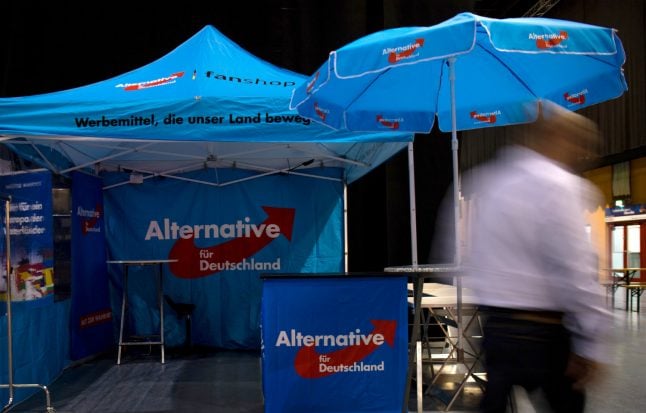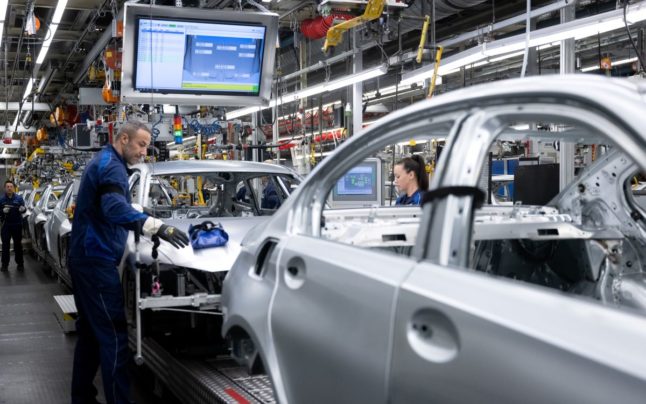This is a German language learner article. The words in bold are translated at the bottom of the article.
On Monday an Insa opinion poll by Bild newspaper showed the anti-immigration AfD at 13 percent – a drop of 1.5 percentage points – the party’s worst figure for about a year, and fourth place in the current party ranking.
The survey results came after Germany’s Office for the Protection of the Constitution (BfV) last week declared that it had officially designated the AfD a “review case”, meaning it will step up monitoring of political extremism within the group.
The winners of the poll, which asks a sample of voters who they would vote for if an election was held this week, were the centre-right Christian Democratic Union and its Bavarian sister party the Christian Socialists (CDU/CSU).
The CDU/CSU gained two points bringing them to 31 percent. The Greens remain the second strongest force with 19.5 percent (+1.5 points), followed by the centre-left Social Democrats (SPD), who were placed at 13.5 percent, just ahead of the AfD.
SEE ALSO: In depth: Is the AfD becoming too extreme?
Survey would make two coalitions possible
According to the Bild survey, the pro-business Free Democrats (FDP) remain at 9.5 percent. After a slight drop, the Left Party (Die Linke) is now also at 9.5 percent.
The current poll shows two government coalitions would be possible: an alliance between the CDU/CSU and the Greens, which would account for a total of 50.5 percent of voters. With a total of 54 percent, a coalition between CDU/CSU, SPD and FDP would also be possible.
Germany’s intelligence agency shied away from immediate full surveillance of the entire AfD, including phone and email taps, the use of undercover informants and the collection of personal data on MPs.
But it was also to start full surveillance of the party's youth organization Junge Alternative (JA), which is suspected of having ties with the extremist Identitarian Movement.
And it was to place under surveillance the AfD's most far-right grouping “The Wing” (Der Flügel), led by nationalist Björn Höcke, reported the Tagesspiegel last week.
SEE ALSO: Germany's intelligence agency to step up surveillance of the AfD
German vocab
ein Rückgang (masculine) um 1,5 Prozentpunkte – a decrease of 1.5 percentage points
das Bundesamt für Verfassungsschutz – the Federal Office for the Protection of the Constitution
erklären – to declare
der Prüffall – the test case or review case
politischer Extremismus – political extremism
das Parteienranking – party ranking
gewinnen/erreichen – to gain or increase
bleiben – to remain
die zweitstärkste Kraft – the second strongest force
Umfrage würde zwei Koalitionen ermöglichen – Survey would make two coalitions possible
aktuellen – current
das Bündnis – the alliance
sofortige vollständige Überwachung – immediate full surveillance
verdeckte Informanten – undercover informants
verdächtigt – suspected



 Please whitelist us to continue reading.
Please whitelist us to continue reading.
It would be better if the bold words in the article are in German. At least then we could try to understand them before looking up the translation at the bottom of the article.